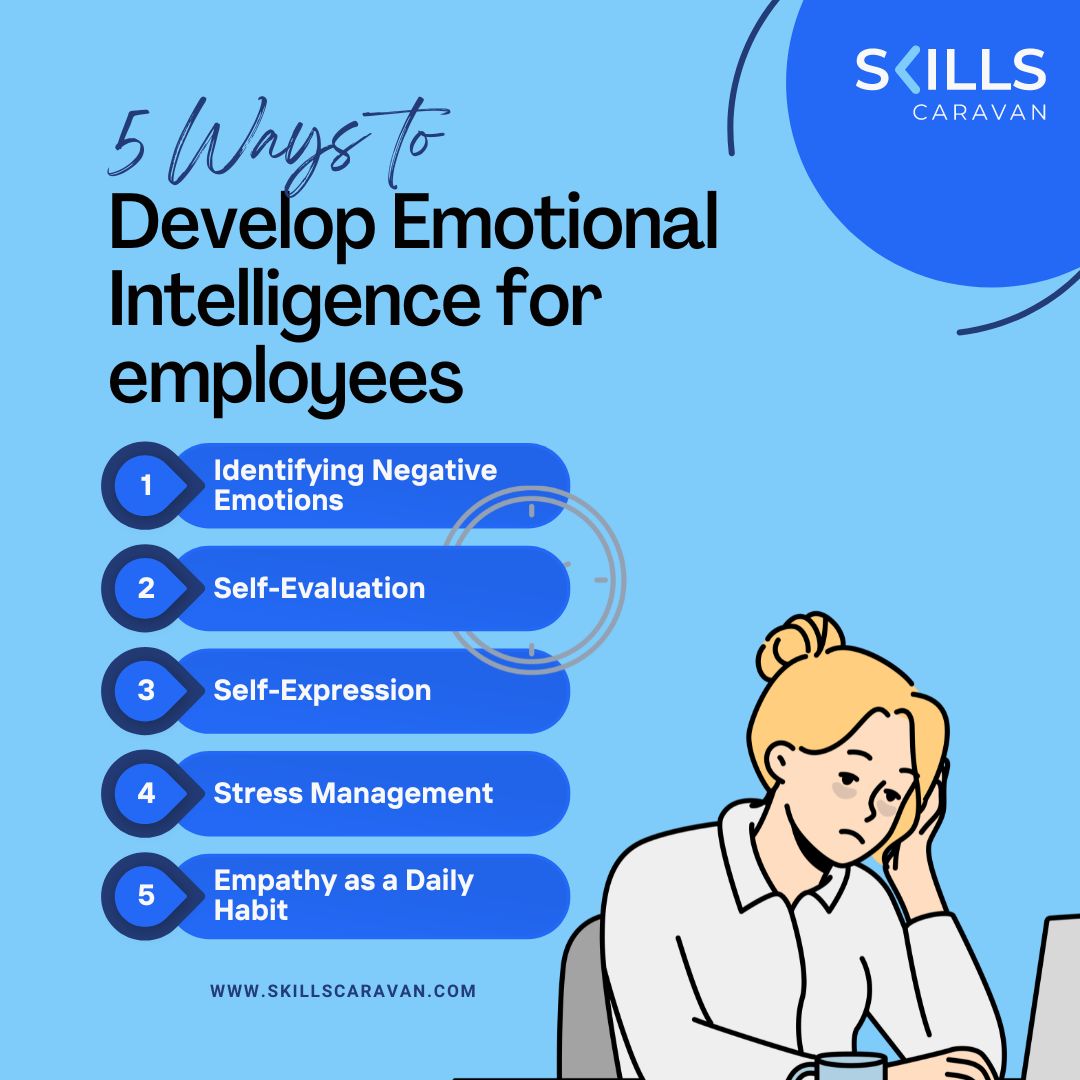.jpg)
How To Develop Emotional Intelligence Training For Employees at Workplace?
The importance of technical proficiency and business acumen is readily apparent. Both of these attributes contribute to the achievement of success in trading and marketing. But emotional intelligence is a quality that a lot of employers ignore.
Not every employee possess emotional intelligence. It's a talent that requires development and care. This is the reason so many organizations are spending money on emotional intelligence training.
In teams, emotional intelligence (EI) improves relationships, problem-solving, and communication. It increases empathy, which enables leaders to better comprehend and inspire their team members. In order to create a happier, more productive work environment, emotional intelligence (EI) is also essential for handling stress and resolving disagreements.
What is emotional intelligence training for employees?
In teams, emotional intelligence (EI) improves relationships, problem-solving, and communication. It increases empathy, which enables leaders to better comprehend and inspire their team members. In order to create a happier, more productive work environment, emotional intelligence (EI) is also essential for handling stress and resolving disagreements.
While some seem to be born with emotional intelligence, most need assistance in developing it. For this reason, any company's learning and development strategy must include emotional intelligence training.
5 Ways To Develop Emotional Intelligence for employees
Developing emotional intelligence involves nurturing a cluster of innate qualities that contribute to our mental well-being. Alongside professional emotional intelligence training, there are five simple methods we can adopt to optimize our affective awareness.

1. Identifying Negative Emotions:
Emotional management plays a significant role in emotional intelligence When we can label emotions that bring us down, we become more resilient to stress. Strategies include refraining from immediate reactions to upsetting situations, avoiding jumping to conclusions, and practicing empathy in interpersonal conflicts.
2. Self-Evaluation:
Before understanding others, it's crucial to observe oneself objectively. Regularly questioning our thoughts and actions enhances perception and humility, fostering emotional intelligence.
3. Self-Expression:
Effective self-expression is vital for emotional intelligence. It involves clear communication and solution-oriented dialogue. Expressing thoughts and feelings naturally and understandably promotes self-regulation and solution-focused thinking.
4. Stress Management:
Emotional clarity and awareness are linked to better stress management. Prolonged exposure to stress without coping strategies can lead to mental health problems. Techniques like using senses and staying close to nature, along with simple stress management practices, can significantly reduce anxiety levels and combat stress effectively.
5. Empathy as a Daily Habit:
Empathy, the ability to see the world from others' perspectives, is essential for emotional development. Acts of kindness and understanding others' thoughts contribute to an empathetic life. Practicing empathy in daily interactions, such as listening without judgment and accepting others' feelings, enhances emotional and social intelligence, strengthening interpersonal bonds.
Benefits of Emotional Intelligence Training for employees
- Facilitates Career Progression: When employees hit a plateau in their current roles but aren't quite ready for leadership positions, emotional intelligence training can provide the necessary push. By honing leadership skills like crisis management, self-control, and problem-solving, employees can prepare for future leadership roles.
- Alleviates Workplace Stress: Emotional intelligence training helps employees manage stress by enabling them to handle their own and others' emotions effectively. High emotional intelligence fosters positive relationships and aids in navigating challenging situations, contributing to reduced stress levels in the workplace.
- Enhances Communication: Emotional intelligence training improves communication by helping employees recognize and articulate their emotions effectively. Rather than reacting emotionally, employees learn to express their needs calmly and assertively, fostering healthy workplace communication and reducing conflict.
- Strengthens Social Skills: In an increasingly remote and globalized workforce, emotional intelligence training equips employees with the social skills needed to navigate diverse workplace interactions effectively. By fostering empathy and understanding, employees can build stronger relationships and collaborate more efficiently.
- Promotes Positive Culture: Emotional intelligence training promotes a positive work environment by raising awareness of how emotions influence team dynamics. Employees learn to manage their emotions to prevent negativity from spreading and actively contribute to a culture of positivity and resilience.
Conclusion
In conclusion, while technical proficiency and business acumen are crucial for success in trading and marketing, emotional intelligence often goes overlooked by employers. However, it's a trainable quality that plays a vital role in improving relationships, problem-solving, and communication within teams. Emotional intelligence training helps employees develop empathy, handle stress, and resolve conflicts, ultimately leading to a happier and more productive work environment. Incorporating emotional intelligence training into a company's learning and development strategy is essential for nurturing a workforce equipped to thrive in today's dynamic business landscape.


